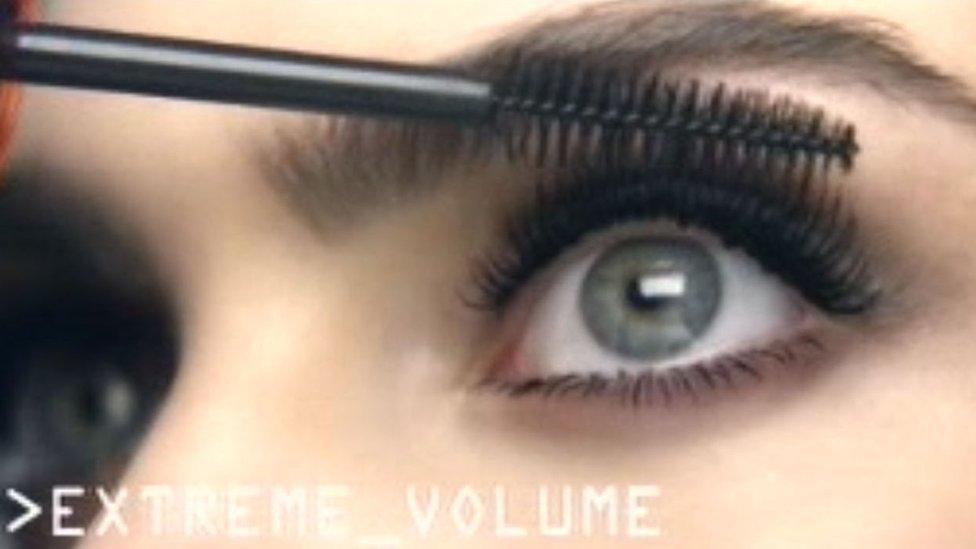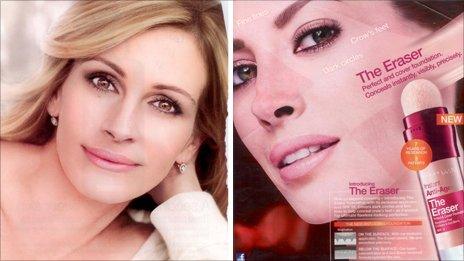Rimmel ad featuring Cara Delevingne 'misled viewers'
- Published

There was more to Cara Delevingne's eyelashes than met the eye
A Rimmel mascara advert starring Cara Delevingne has been banned for using tricks to exaggerate the look of her "dangerously bold lashes".
Delevingne was seen using Scandaleyes Reloaded mascara as the ad promised "extreme volume... extreme wear."
But it didn't say Delevingne had also been given individual lash inserts to fill in gaps and that some lashes had been re-drawn in post-production.
The Advertising Standards Authority (ASA) has said the ad was misleading.
It must not appear again in its current form, the watchdog said.

Dangerously bold lashes, dangerously bold production techniques
In the advert, a voiceover said: "Rimmel introduces Cara Delevingne for new Scandaleyes Reloaded mascara. Dangerously bold lashes. New max-density brush for clump free lashes. Extreme volume... extreme wear."
Rimmel's owner Coty UK said the ad accurately represented the product, and that Delevingne's lashes looked "full and long" before they used their extra production techniques as well as after.
Coty said it used individual lash inserts "only to fill in gaps and to create a uniform lash line", which was "in accordance with industry practice".
And some lashes were re-drawn in post-production "where they were not visible due to the model's dark eyeshadow". But that process didn't lengthen or thicken the lashes, Coty said.
'Exaggerating effect'
But the ASA took a different view. It concluded that the effect of the lash inserts or the post-production - or both - was to give the appearance of "longer lashes with more volume".
The ASA ruling, external said: "Because the ad conveyed a volumising, lengthening and thickening effect of the product we considered the use of lash inserts and the post-production technique were likely to exaggerate the effect beyond what could be achieved by the product among consumers.
"We therefore concluded the ad was misleading."
Coty said: "While we regret the decision of the ASA, we will of course comply with the ruling and not air the TV commercial again in this state."

Follow us on Facebook, external, on Twitter @BBCNewsEnts, external, or on Instagram at bbcnewsents, external. If you have a story suggestion email entertainment.news@bbc.co.uk, external.
- Published12 April 2017

- Published8 July 2015

- Published27 July 2011
